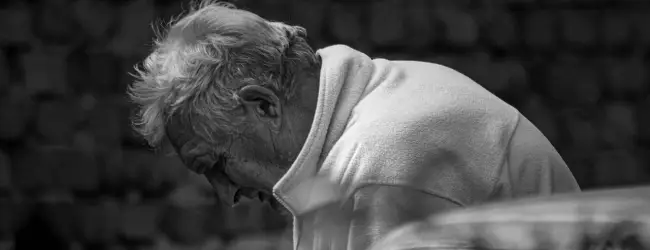I’m going to talk about our lifestyles. I believe that the difference between poverty and frugality can be explained by a critical problem-solving attitude.
Poverty is caused by reduced spending?
Recently, I saw a tweet like this: “Cutting the budget is nonsense. It only causes poverty.” Sometimes, we will see such messages, especially in political claims. Even if we exclude the political claims here, I think that some people believe that cutting their household budget causes only poverty.
By the way, I enjoy living a frugal lifestyle. And I recently began to try a new challenge. That is, making foods from scratch as much as possible. I enjoy this challenge. And I think that cutting my budget brings me more wealth and freedom. I cut my budget to be more wealthy.

I think that this is the difference between poverty and frugality. Poverty will often result in losing their wealth, even if they cut their budget. On the other hand, frugality often brings wealth, even if we cut our budgets.
The attitude for critical problem-solving
So, let’s try to explain why such a difference happens. In my opinion, this is mainly caused by whether we try to see what the critical problems are.
“Critical problem” is the most essential cause of our difficulties. So, if we solve the critical problem of our difficulties, the difficulties will fade away. But if we don’t understand and never touch it, our difficulties will stay with us.
And I think that the attitude toward critical problem-solving makes the difference between poverty and frugality.

Cluttered room example
To explain that, let’s assume the following situation. We have a cluttered room. And we have wanted to clear the room for a long time. But we have failed every time.
At such a time, we can suppose what the critical problem is. We may be able to guess at the various possibilities for causes. For example, lack of organization, lack of shelves or space, no time to clear them, the custom that we don’t place them properly after we use them, our cat or dog cluttering the room, and so on.
In this case, we’ll assume that the critical problem is the custom that we don’t place items properly after using them. And we’ll also assume that we can modify our problem if we understand the reason. (We won’t assume the characteristics of those who cannot do that, such as those with ADHD, here.)

Ignoring the critical problem causes poverty
If we don’t try to figure out what the critical problems are, we could easily be influenced by our surroundings’ tellings. Someone may say, “I’ll give you the shelf that I don’t use.” So we get the shelf and place it in our cluttered room. But of course, the messy room stays cluttered. Because the critical problem is our habit.
Many people or authorities would say various reasons. A TV ad may say, “If you buy this brilliant new vacuum, your room will be clean!” A cleaner seller may say, “If you buy our great cleaner, your room will be shiny!” A consultant may say, “If you buy my motivational seminars, you can do it!” Then our room continues to be messy or becomes more messy.

There is confusion because there is no attempt to find out the critical problems. We buy a lot of “valuable things” to solve our problems. Sometimes, we dare to buy expensive things, because the sellers often say, “The higher the price, the more you are motivated to regain the value that you paid!” And sometimes, we believe it to motivate us.
But unfortunately, these are not all critical problems. So we get more confused.
So we feel that cutting the budget is nonsense
At such a time, we feel cutting the budget is nonsense. Because for the people who don’t understand the critical problem, “cutting the budget” means “reducing the resources of everything.”
We have to pay maintenance costs to keep our “brilliant products.” The cost is not only money but also time, place, motivation, efficiency, and so on.
And if we reduced every resource, the resources for our critical problem would also be reduced. In other words, when we added something, we added only unnecessary things. So when we reduce the cost of everything, we will also lose resources for critical problems. The resources for the critical problem were never increased. Losing only.

Such a person tends to be afraid of losing anything. In addition, the person wants to keep any items, even if they are unnecessary. Because they could be valuable in the future. So I suspect that there are so many unnecessary things in the “poor man’s room.”
I think this is “poverty.”
Critical problem-solving causes frugality
On the other hand, if we try to figure out what the critical problems are, we could find “unnecessary value.” For example, if we find out the critical problem is our custom of not placing items properly after using them, we can cut the budget for the shelves, vacuums, cleaners, and so on. Because the budget doesn’t have such a big impact on our happiness.
As a result, if we understand the critical problems, we can use the saved money or resources for better things. That makes our lives better.
Of course, we could fail. But if we keep trying to guess what the critical problem is, we can get closer to it gradually. And this is fun work because our lives will be better and better. No need to motivate, such as “Regain the value that you paid!”
I think this process is “frugality.”

Conclusion
So I believe that the difference between poverty and frugality can be explained by a critical problem-solving attitude.
Poverty will often result in losing their wealth, even if they cut their budget. On the other hand, frugality often brings wealth, even if we cut our budgets.
Finding the critical problem is not easy. But we can get closer to it gradually. And once we find it, our future changes dramatically.
If we understand this logic, we might be able to use frugality more effectively.
Thank you for reading. We’ll see you in the next article.


